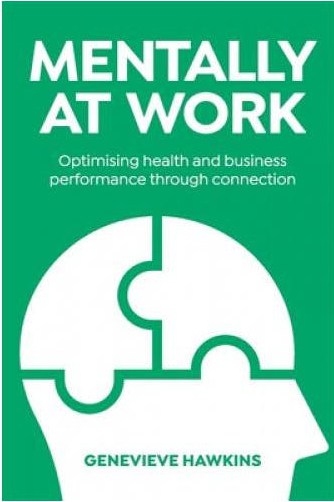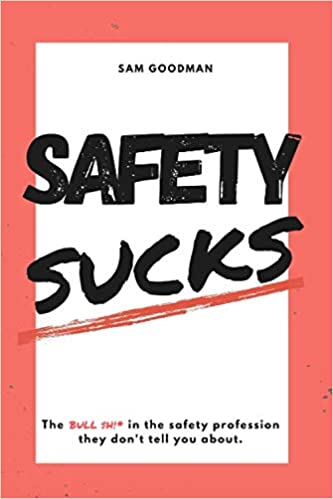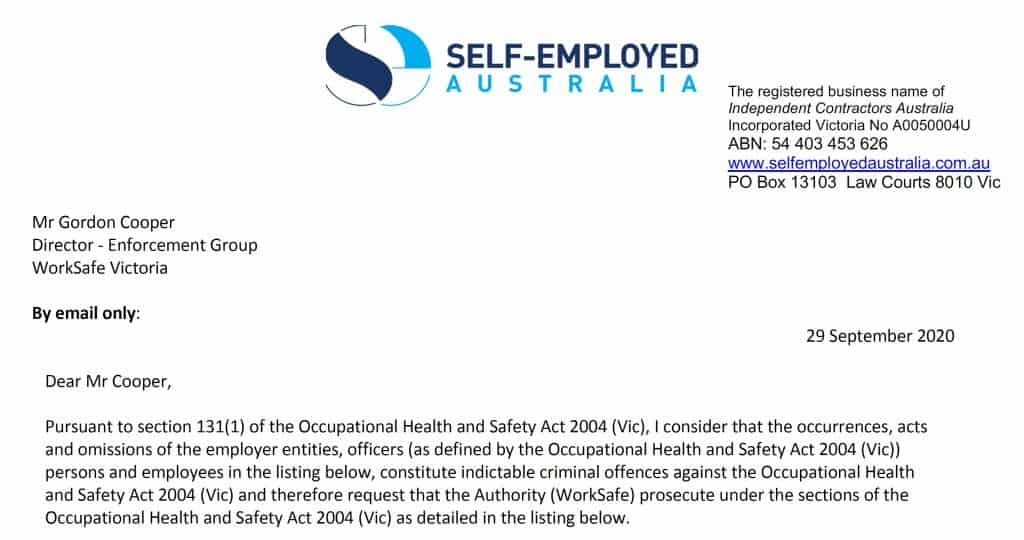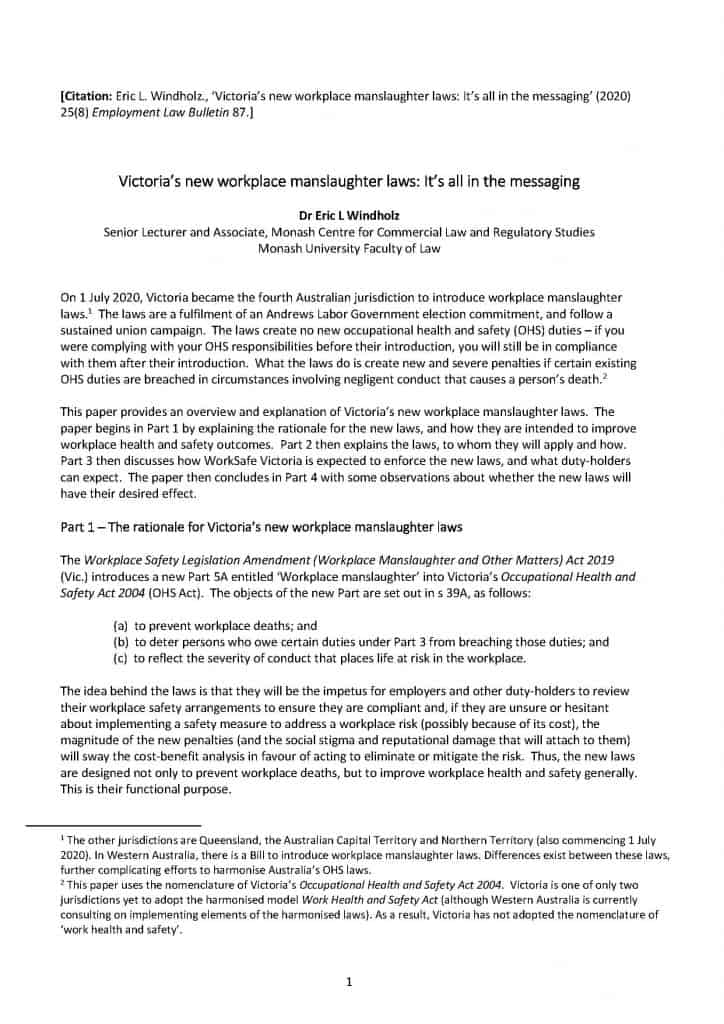
I bought Genevieve Hawkins’ self-published book “Mentally at Work – Optimising Health and Business Performance through Connection” because I have met Genevieve at various Australian occupational health and safety (OHS) conferences and wanted to know her thoughts.
Her book is about an increasingly important element of OHS – psychological harm – and reinforces the Human Resources (HR) approach to mental health at work which is based around Leadership and Psychology. This HR perspective is the dominant approach to mental health at work in Australia, but it largely omits the organisational and cultural context of mental health. As such, the book will be popular with those whose perspectives it reinforces, but it misses some important OHS and research perspectives about harm prevention.






